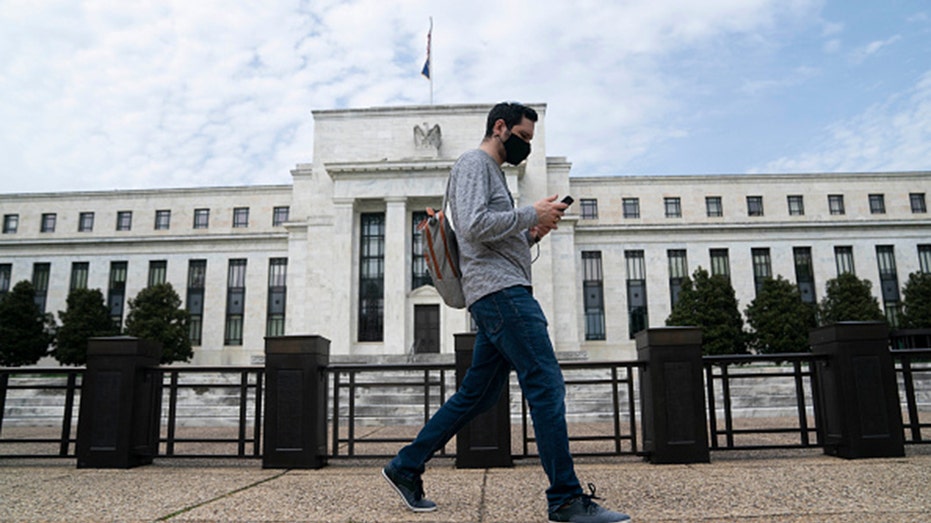Fed starts shrinking $8.9T balance sheet to combat sky-high inflation
Fed on track to reduce balance sheet by $3T over next 3 years
Biden meets with Fed Chair Jerome Powell to discuss the state of the American, global economy and inflation
Biden meets with Fed Chair Jerome Powell to discuss the state of the American, global economy and inflation
The Federal Reserve is poised to start shrinking its $8.9 trillion balance sheet, deploying one of its lesser-known tools as it seeks to tame the hottest inflation in a generation.
In a plan outlined at the U.S. central bank's May meeting, policymakers said they will begin winding down the balance sheet on June 1 at an initial combined monthly pace of $47.5 billion, a move that will further tighten credit for U.S. households. They will increase the runoff rate to $95 billion by September, putting the Fed on track to reduce its balance sheet by about $3 trillion over the next three years.
HIGH INFLATION COULD BE 'PAINSTAKINGLY SLOW' TO COME DOWN
The Fed's balance sheet, which consists mostly of bonds and other assets that it has purchased, nearly doubled in size during the pandemic as the Fed bought up mortgage-backed securities and other Treasurys in order to keep borrowing cheap.

A man wearing a mask walks past the U.S. Federal Reserve building in Washington D.C., the United States, on April 29, 2020. ((Xinhua/Liu Jie via Getty Images) / Getty Images)
Policymakers say the portfolio runoff will work in tandem with interest rate increases to bring prices down by slowing growth and tightening credit. The Fed voted to raise rates by a half-basis point in May and has all but promised that similarly sized hikes are on the table at upcoming policy meetings in June and July. While it's unclear how effective reducing the balance sheet will be in fighting inflation, policymakers have suggested they are optimistic it will work to bring prices down.
"Although estimates are highly uncertain, using a variety of models and assumptions, the overall reduction in the balance sheet is estimated to be equivalent to a couple of 25-basis-point rate hikes," Fed Governor Christopher Waller said Monday during a speech.
The question now is whether the Fed can successfully engineer the elusive soft landing — the sweet spot between tamping down demand to cool inflation without sending the economy into a downturn. Hiking interest rates tends to create higher rates on consumer and business loans, which slows the economy by forcing employers to cut back on spending.

In this Jan. 29, 2020 file photo, Federal Reserve Chair Jerome Powell pauses during a news conference in Washington. (AP Photo/Manuel Balce Ceneta, File / AP Newsroom)
Fed Chairman Jerome Powell has acknowledged there could be some "pain associated" with reducing inflation and curbing demand but has pushed back against the notion of an impending recession, identifying the labor market and strong consumer spending as bright spots in the economy. Still, he has warned that a soft landing is not assured.
CLICK HERE TO READ MORE ON FOX BUSINESS
"It's going to be a challenging task, and it's been made more challenging in the last couple of months because of global events," Powell said Wednesday during a Wall Street Journal live event, referring to the Ukraine war and COVID lockdowns in China.
But he added that "there are a number of plausible paths to having a soft or softish landing. Our job isn't to handicap the odds, it's to try to achieve that."





















